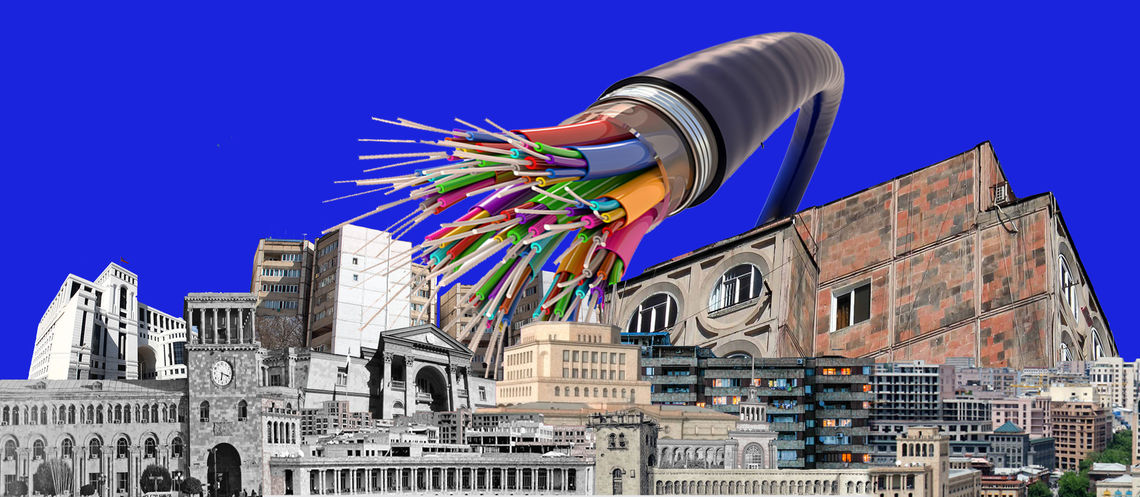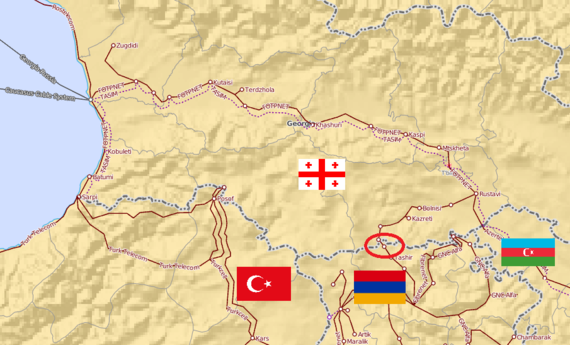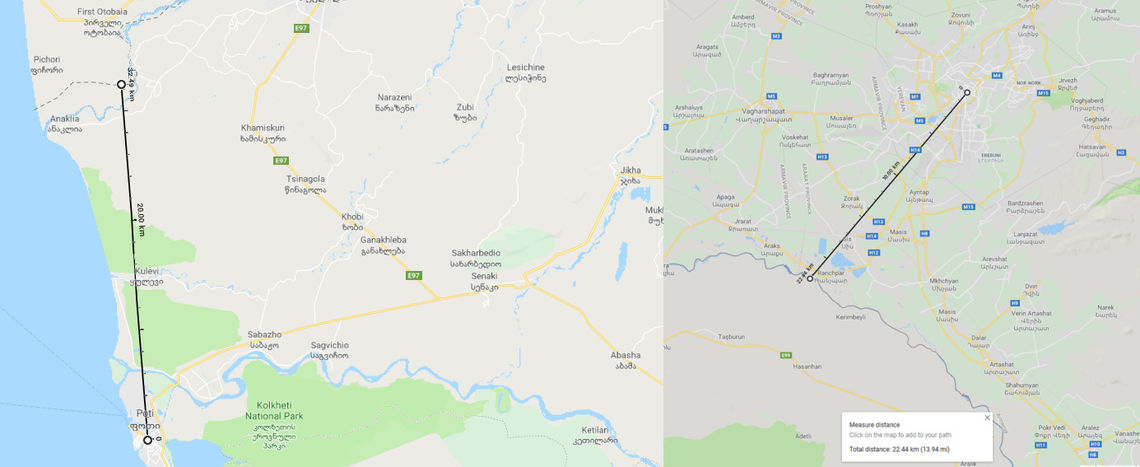
What makes these terrestrial networks so critical to Armenian Internet connectivity is their connection to Poti, a small city along the Georgian coast of the Black Sea. Poti currently acts as the exit node for two major submarine fiber optic cables. The first – the Caucasus Cable Network – connects to the European Union by passing under the Black Sea and connecting to terrestrial networks in Balchik, Bulgaria. The second – the Georgia-Russia cable – travels below the western shore of the Caucasus and connects to Russia and the wider CIS at the city of Novorossiysk.
A Digital Bottleneck
This scenario reveals several uncomfortable truths about the state of Armenian telecommunications. The first is that Armenia’s Internet connectivity to its two largest trading partners is dependent on the functionality of two submarine cables and the integrity of Georgia’s terrestrial cable network. While terrestrial networks have shown themselves to be fallible there is also the possibility that a geologic event would damage a submarine cable. In the past, the Georgia-Russia submarine cable has experienced geologic disturbances that have led to major disruptions in not just the South Caucasus and Russia, but even as far away as Iran and Oman.
While terrestrial damage and disturbances to submarine cables highlight the inescapable reality that technology and infrastructure are fallible, Armenia’s trouble comes from the lack of viable options in the event of a major connectivity issue. During the disruption of the Georgia-Russia cable, Russian Internet service providers were able to reroute traffic via terrestrial networks without major connection blackouts.

A screenshot from the ITU Interactive Transmissions Map showing the terrestrial fiber optic cable between Armenia and Georgia (circled in red). Map source.
While terrestrial damage and disturbances to submarine cables highlight the inescapable reality that technology and infrastructure are fallible, Armenia’s trouble comes from the lack of viable options in the event of a major connectivity issue.
Although the minor telecommunications junctions along the Armenian-Iranian border are often used to reroute Internet traffic in the event of an emergency or a failure on the Georgian fiber optic network, these systems are unable to handle the entirety of Armenian Internet traffic.
Trouble in the Neighborhood
This dependency on Georgian telecommunications infrastructure has put Armenia in a potentially compromising situation given the controversy around Caucasus Online’s ownership.
This has opened two possibilities for connection disruption in the future. The first is that Caucasus Online comes under the ownership of a hostile party. The rumored purchase or majority ownership of Caucasus Online by an Azerbaijani firm has circulated around Armenia (including during the recent outage), but Azerbaijan is not the only regional player that would strategically benefit from ownership of the firm. During the sale of Caucasus Online in 2015, some Georgians expressed anxiety that Russia would purchase the firm and use ownership as a means of exerting pressure on Georgian Internet users.
As reported by GeorgianJournal.ge, former CO owner Mamia Sanadiradze was vocal in how Georgia would be impacted by the sale, stating “…if the Turks or Russians get their hands on the cable, they will essentially cut off Georgia’s air and use it as leverage to further their own interests. They will enter the market with fixed prices like they used to do before, and Internet will become a far more expensive commodity than it is now.”
For Armenia, the prospect of Caucasus Online falling under the ownership of a hostile power is an understandable cause for worry. Although Russian ownership of the cable system would not be a direct threat to Armenian interests, it would nonetheless represent a possible increase in regional tension just as if a strategic pipeline, highway, or river changed control.
Later in 2016, the Georgian government was forced to address the supposed secret sale of the Black Sea cable by Caucasus Online to Russian telecommunications operator VimpelCom, initially mentioned in a statement by the Party of Free Democrats. While the sale in question was related to access of services and not ownership of physical infrastructure, the incident nonetheless highlighted both the anxieties related to who controls access to the Internet and the strategic benefit that would come from such ownership.
For Armenia, the prospect of Caucasus Online falling under the ownership of a hostile power is an understandable cause for worry. Although Russian ownership of the cable system would not be a direct threat to Armenian interests, it would nonetheless represent a possible increase in regional tension just as if a strategic pipeline, highway, or river changed control.
Collateral Damage
The second major challenge is the possibility that physical conflict between Georgia and Russia would damage the fiber optic cable network or lead to long-term disruption to telecommunication services. The Caucasus Cable System was completed in the summer of 2008, just mere weeks prior to the Russo-Georgian war. Poti, the main terrestrial link for both the Black Sea and Georgia-Russia cables, lies only 32 kilometers (20 miles) from the border of Abkhazia, one of two disputed areas between Georgia and Russia. While this is only 10 km (7 miles) longer than the distance between downtown Yerevan and the Turkish border, the Russian military’s repeated expansion of demarcation lines in South Ossetia towards Georgia has shown just how fluid these frozen conflicts can be.
Although the cost associated with satellite Internet remains high and speeds struggle to match that of fiber optic networks, the usage of satellite Internet as a fallback during a future outage may provide a useful alternative to current backup infrastructure in Iran.



Unortunately since 2021, Azerbaijani Neqsol Holding owned by businessman Nasib Hasanov has become the 100% owner of Georgian internet provider Caucasus Online. The pay for the internet we have been using, to an Azerbaijan Company !
https://agenda.ge/en/news/2021/792